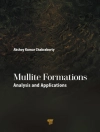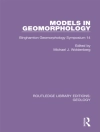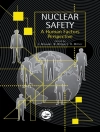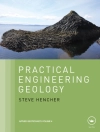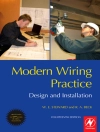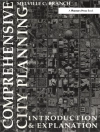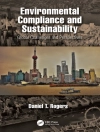This book endeavors to critically assess and analyze the latent energy potential inherent within waste materials, thereby reframing the conventional perception of garbage from being solely a detrimental source of environmental pollution to being recognized as a viable and sustainable energy source. Furthermore, this book provides an extensive and meticulously curated database that serves as an invaluable resource to guide stakeholders in selecting the most appropriate and effective methodologies for waste disposal, whilst facilitating the generation of renewable energy that can significantly contribute to energy sustainability. In undertaking this comprehensive evaluation, the book highlights the transformative possibilities of waste management practices. It underscores the broader implications for environmental conservation and the advancement of renewable energy technologies in contemporary society.
The text comprises 17 chapters on waste management with clean energy generation (heat, CH4, H2, diesel, petrol, methanol, ethanol, etc.) that experts in the field have suggested.
Energy from trash may be recovered, which results in a decrease in greenhouse gas emissions and the creation of new recovery technologies. Lowering environmental pollution is an intelligent approach to ensure national energy security and combat the trend toward global warming.
Inhoudsopgave
Chapter 1. Valorisation of animal waste for energy and material recovery.- Chapter 2. Waste Valorization Techniques.- Chapter 3. Wastes as novel source of energy: Technical and economic aspects.- Chapter 4. Business model of resident participation based sustainable bioreactor landfill gas case study of the city of depok.- Chapter 5. Municipal Solid Waste Management: Waste to energy technologies versus composting – Two sustainable development models.- Chapter 6. Sustainable Energy Generation from Municipal Wastewater using High-Rate Activated Sludge process.- Chapter 7. A Proposed Model for Energy Generation from MSW of Kolkata through Gasification Route.- Chapter 8. Gasification of Municipal Solid Waste.- Chapter 9. Thermal Modeling and Analysis of a Novel CHP Plant Employing Solid Oxide Fuel Cell and MSW Gasification.- Chapter 10. Recovery potential of municipal solid waste for hydrogen generation.- Chapter 11. Estimation of Methane Gas Emissions from Municipal Landfill Sites: A Comparative Review on the Existing Models.- Chapter 12. Prospective Energy Production from Incineration: A Brief Overview on Different Types of Energy Produced by Incineration.- Chapter 13. Biogas purification, upgrading and utilization: Focusing on biological systems.- Chapter 14. Biogas production from municipal solid waste (MSW) insights into feedstock preparation and upgrading techniques.- Chapter 15. Enhancing Circular Economy and Waste Management in Zanzibar by Leveraging Young Entrepreneurship and Innovation.- Chapter 16. Unlocking the Green Hydrogen Potential of Brazilian Landfills: Techno-economic Feasibility and Sustainable Applications.- Chapter 17. Emerging Environmental Contaminants from Landfills.
Over de auteur
Dr. Abdelkader Anouzla received his Ph.D. in Science & Technology at Hassan II University -Faculty of Science and Technology Mohammedia, specializing in water treatment. Dr. Abdelkader ANOUZLA has published almost 100 peer-reviewed articles and Ten books. As well as being a guest speaker at several conferences, he has also published numerous proceedings. He has experience in water and wastewater, solid waste management, environmental chemistry, pollutants in soil, study and characterization of waste, recycling, and reuse of waste to produce new materials, and air pollution. Anouzla conducts research in the areas of water and waste treatment, wastewater treatment plant operation, leachate discharge treatment, solid waste sorting, technical landfill management, and composting of solid waste and sludge from wastewater treatment plants, the Algae as a Natural Solution for Water-Food-Energy nexus and Microplastic pollution in the environment, digitalization in the water sector, Saving water in business and irrigation, nitrogen pollution.
Prof. Salah Souabi PHD in water and waste treatment, Professor researcher at Hassan II University of Mohammedia, at the Process and Environmental Engineering Laboratory of the Faculty of Science and Technology of Morocco. Professor Salah Souabi is a University of Poitiers Scienet Environmental Techniques graduate.
He is responsible for a research team on managing liquid and solid waste, with a scientific production of 160 articles published in international journals and 30 book chapters. The poet Salah Souabi is the editor of Nine Livres, an expert at the level of CNRST Morocco, and several newspapers internationally. He supervises several researchers on the design of wastewater treatment sectors, the treatment of water and waste, the optimization of the treatment conditions of wastewater treatment plants, the treatment of leachate discharges, the sorting of solid waste, management of technical landfills, operation of wastewater treatment plants, composting of solid waste and sludge from wastewater treatment plants using composts in agroecology. Professor Salah Souabi is a member of the management team of the Water Institute, which was recently created by the Ministry of Education and Research in Agadir.


